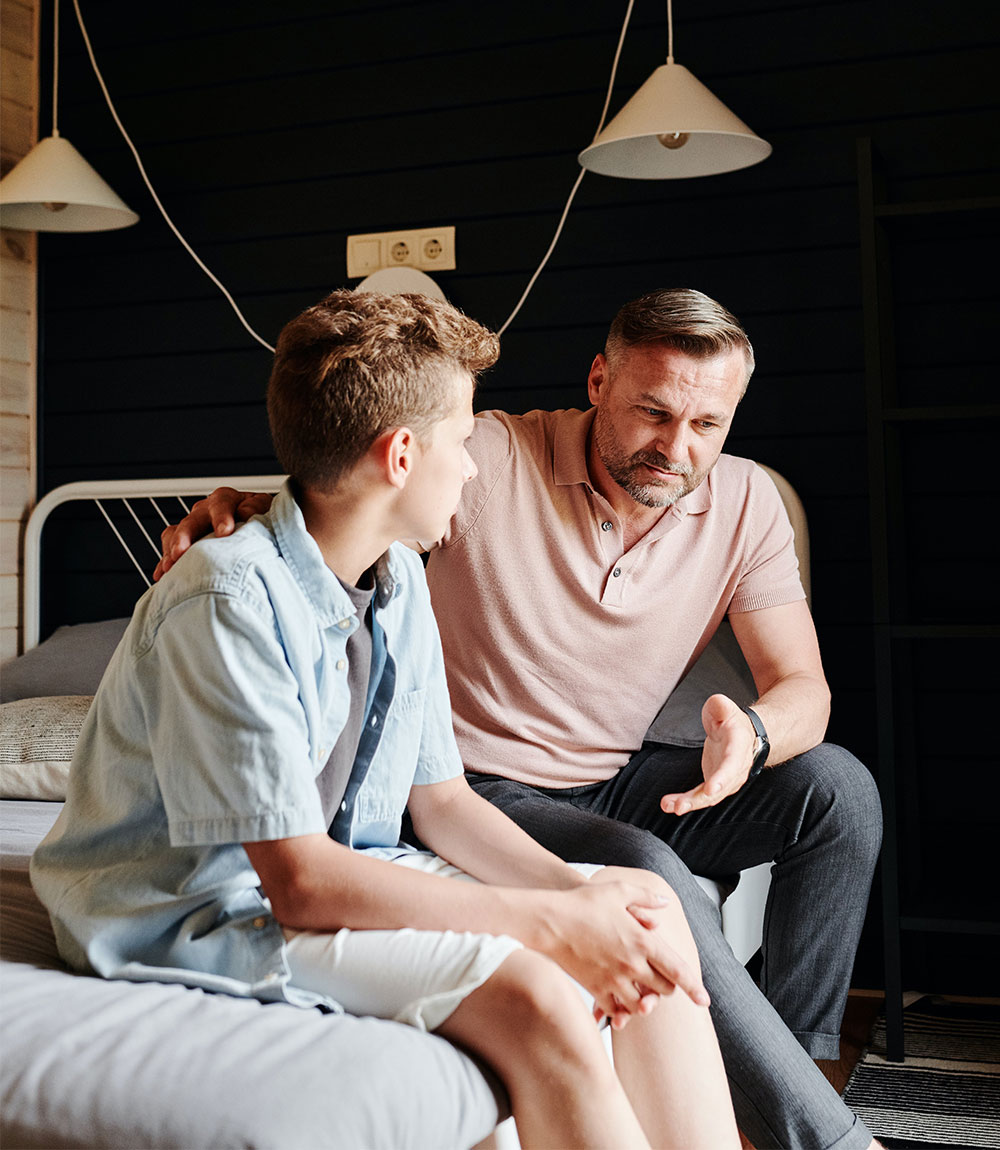For many romantic partners, couples counseling signals their alarm. In response, you might feel frustrated or confused when your partner won’t go to couples therapy. Rest assured that there are several options you can take: reading a self-help book together or alone, attending a couples workshop, going to counseling alone, or attending couples counseling online, or in person.
Of course, your desire is for couples counseling. For starters, let’s try collaboration because it’s important to understand why your partner won’t go to couples therapy. First, pick a neutral time and place so you address this in a proactive manner. Then follow these three steps. (Notice, I said pick a neutral time and space).
Note: You don’t need to complete all three steps in one sitting. Going to couples counseling is more of a process than a destination. If you get stuck in any step. Or, if your partner gets too upset, then simply revert back to step one to reflect and reassure some more.
Steps to follow when your partner won’t go to couples therapy
Step one: Invite and Empathize
Start the conversation with a neutral observation. For example, “Honey, you’ve made it clear that you don’t want to go to counseling. I’m sure there’s a good reason for it, so would you mind filling me in on your concerns?
Note: Be neutral. Stick to the facts; don’t make assumptions about why and avoid being critical or blaming. Dr. Rosenberg, the author of Nonviolent Communication, highlights that requests become demands when our partner believes they will be blamed or punished if they don’t comply. With a demand, our partners only have “two options: submission or rebellion.”
After the initial invitation, use information gathering tools and emotional regulating tools to help your partner feel invited rather than on trial for an alleged crime.
- Provide reassurance. “You are important to me. I’m not upset. I just want to understand you better. “
- Ask clarifying questions. “Are you opposed to couples counseling all together, or right now because of work stress?
- Educated guessing. Do you think we… can’t afford it? …don’t need therapy? Or… the therapist will side with me and assume you’re the problem?
- Reflect what you hear. If I heard you correctly, you’re concerned with therapy being another place where you going to blamed for our conflict. Am I accurate? Or, did I miss something?
Move to the next step when:
- You fully understand your partner’s perspective.
- Maybe you learned something new.
- Your partner is reasonably calm, emotionally accessible, and seems curious.
Step two: Share your concern
Note: Don’t offer the obvious, and preferred solution: Couples counseling. Instead, stay in the process of collaboration.
- Be specific and brief. Start with phrases like “And the thing is…”
- Don’t start this step with a phrase like, “But… I think it’s best if we…”
Frame you concern in one of these four categories: Health? Safety? Learning? Impact on others?
“And the thing is…I’m concerned about the overall health of our relationship”
“And the thing is…I’m concerned about the emotional safety we have during conflict.
“And the thing is…I’m concerned that we haven’t learned to communicate well.
“And the thing is…I’m concerned about the impact it has on our kiddos.
Note: if your partner gets upset, don’t proceed forward. Instead, go back to step one.
Step three: Collaborate. Brainstorm, assess, and choose some options.
FRAME THE PROBLEM.
- Start with, “I wonder if there’s a way that we can address your concerns about going to couples counseling and my concerns about not going. Do you have any ideas?
- Let them share all of their ideas before you share yours. Once all the ideas are on the table…
CONSIDER ALL POTENTIAL SOLUTIONS WITH 4 LITMUS TEST QUESTIONS
- Does the idea address my partner’s concerns?
- Does it address my concerns about our relational health, emotional safety, learning to communicate better, or the impact it has on our friends, loved ones of kiddos?
- Do any of the proposed ideas bring up other concerns? If so, keep drilling down for more ideas.
You’re done if…
- You have a mutually satisfying and realistic solution about improving your relationship.
- A plan to go to some form of therapy: reading self-help books together, attending a couples workshop, going to counseling alone, attending online, or in person.







